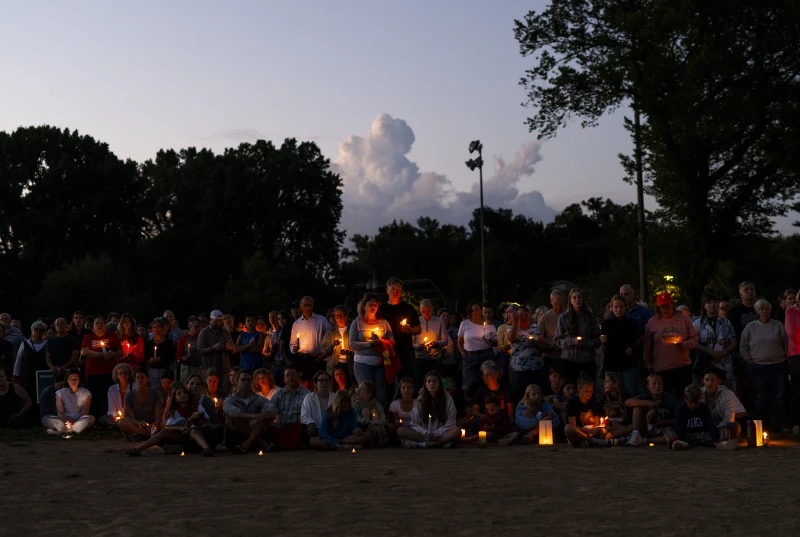

People attend a vigil following a mass shooting at Annunciation Catholic School on Aug. 27, 2025, in Minneapolis. / Credit: Stephen Maturen/Getty Images
CNA Staff, Aug 28, 2025 / 11:30 am (CNA).
The leaders of the Minneapolis Catholic school where two children were shot and killed during a mass shooting incident on Wednesday say the school will remain closed for the time being as the community continues to deal with the “unfathomable” deadly incident.
The shooting took place during the all-school Mass at Annunciation Church in Minneapolis on Aug. 27. The gunman, identified as 23-year-old Robin Westman, born Robert Westman, shot through the church’s stained-glass windows with a rifle, killing the two children and injuring nearly 20 children and adults before taking his own life.
The shooting generated global headlines and drew prayers and support from leaders including Pope Leo XIV and President Donald Trump.
In a Facebook post on Wednesday evening, Annunciation Catholic School Principal Matthew DeBoer and parish pastor Father Dennis Zehren described the crisis as an “impossible situation.”
“No words can capture what we have gone through, what we are going through, and what we will go through in the coming days and weeks,” they wrote. “But we will navigate this — together.”
The leaders indicated the school would remain closed for at least the rest of the week and possibly longer. “As we process and navigate this unfathomable time together, we will be in touch this weekend regarding when school will resume,” they said.
The statement noted that law enforcement are still carrying out “essential work” on the school’s campus, located several miles south of downtown Minneapolis.
Families in the parish will have access to support services, they said.
“In this time of darkness, let us commit to being the light to our children, each other, and our community,” the statement said. “We will rebuild our future filled with hope — together.”
Pope Leo XIV after the shooting sent his “heartfelt condolences and the assurance of spiritual closeness” to the victims of the shooting, while Catholic bishops and leaders from around the country likewise called for prayers and support for the school community.
The deadly shooting came after Minnesota’s bishops had implored state lawmakers to provide security funding for local nonpublic schools.
Those appeals from the bishops came after deadly school shootings at Robb Elementary School in Uvalde, Texas, and at the Covenant School in Nashville, Tennessee.
The prelates had argued that students at Catholic and other nonpublic schools should receive the same level of protection as their public-school peers, though bills to that effect stalled in the state Legislature.
Read More
